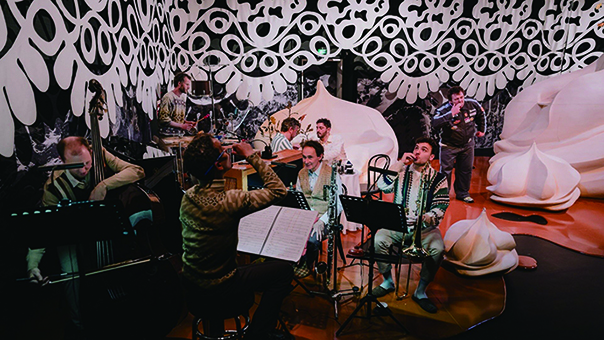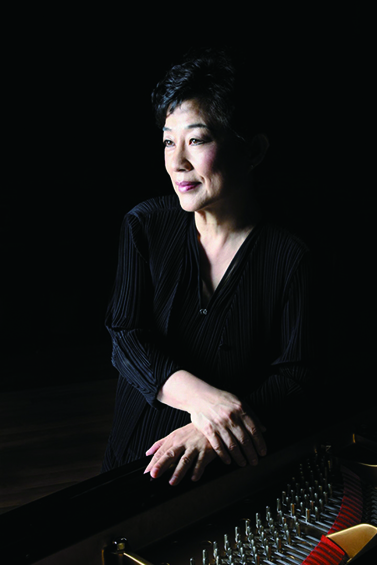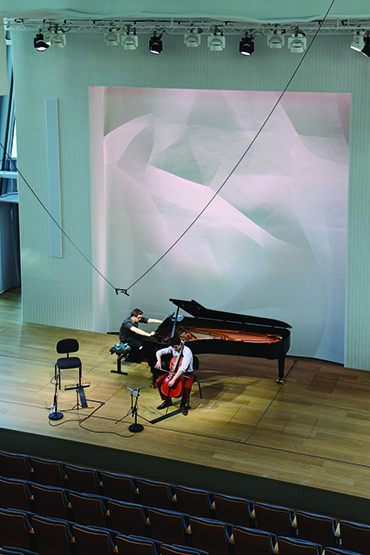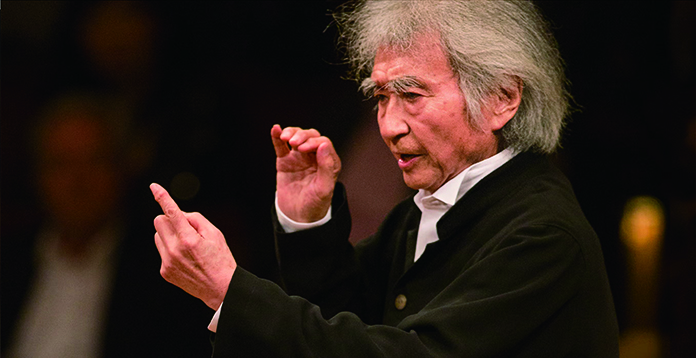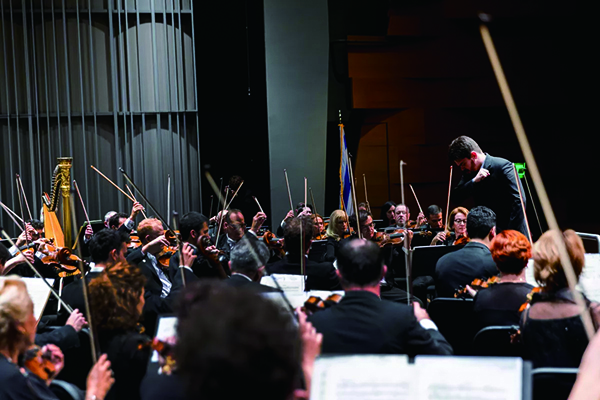노먼레브레히트 칼럼 | | SINCE 2012
영국의 평론가가 보내온 세계 음악계 동향
음악 교육의 미래
음대 나와서 무얼 할까
음악 대학에 진학하기에는 가히 최악의 시기이다. 등록금은 천문학적인 금액을 자랑하고, 비용은 나날이 고공행진이다. 런던의 경우 한 해에 드는 등록금은 9천 파운드(한화 약 1,440만 원), 생활비는 그의 두 배이다. 미국의 주요 대학은 3년간 해마다 8~10만 달러(한화 약 1억 400만~1억 3,000만 원)까지도 든다. 아직도 음악 대학을 고려 중이라고?
축복받은 재능을 지닌 우리 아이가 장학금을 받았다고 치자. 더 좋게는 필라델피아의 커티스 음악원과 로스앤젤레스의 콜번 대학이 제공하는 전액 장학금을 받았다고 가정할 때, 부모는 물론 돈이 들지 않겠지만 아이는 과연 어떤 대우를 받게 될까?
근래의 한 크리스마스 당일, 줄리아드 음악원에서는 난방을 아끼겠다며 모든 외국인 학생을 기숙사 밖으로 내쫓았다. 커티스 음악원은 유구한 학생 강간 문제를 안고 있으며, 이제야 독자적인 수사를 진행 중이다. 노스캐롤라이나 대학교에서는 예술대 학생 56명이 성폭행에 대한 소송을 제기했다. 미시간주에서는 바이올린 교수였던 스티븐 십스가 징역형을 선고받았으며, 작곡가 브라이트 셩은 로런스 올리비에가 흑인 분장을 하고 등장하는 고전 영화 ‘오셀로’를 상영한 뒤 정직당했다.
집단따돌림과 괴롭힘도 캠퍼스 내에 만연하다. 첼리스트 요요 마가 “여러분은 살아오면서 힘을 남용하는 자들을 목격했을 것”이라 대학 졸업 축사에서 말하기도 했다. 교사들은 뜻하는 바를 말하지도, 필요한 것을 보여주지도 못한다. 연주법 향상을 위해 학생의 팔이나 목에 손을 얹는 것은 허용되지 않으니 말이다. 천장에 매달린 눈은 쉴 새 없이 깜박인다. 스튜디오 문은 항상 열려 있다. 교사들은 이메일에 부적절한 단어를 사용해서 해임당한다. 두려움과 혐오가 신성한 공연장 안을 활보한다.
온실 속 화초 농장
그렇다면 학생은 이 안에서 뭘 얻는가? 미국 중서부 한복판에서 연봉 3만 달러짜리 자리를 얻기 위해 다른 40명의 지원자와 경쟁하는 오케스트라 오디션이 이들 대다수가 열망할 수 있는 최고의 선택지이다. 한편, 대학을 건너뛰고 집에서 추가 레슨을 받았던 동기는 이미 두 거리는 앞서 독주 중이거나 할리우드에서 사운드트랙을 감독하고 있다. 그러니 점점 더 쪼그라드는 클래식 음악계 고용 환경 속에서 누가 음악 대학을 신경이나 쓴단 말인가?
보상이라면 두 가지가 있다. 유명 인사와 함께 공부했다는 위신이 바로 첫 번째 보상이다. 안네 조피 무터에게 레슨을 받은 바이올리니스트, 존 애덤스와 함께 한 젊은 작곡가는 추가적인 영광을 얻는다. 런던의 왕립음악원은 학교 안내서에 두 사람의 이름을 공고했다. 물론 그 시간은 필연적으로 짧지만 말이다.
또 다른 보상은 남은 생애 동안 함께 연주할 동반자를 만난다는 점이다. 대부분의 현악 4중주단은 음악 대학에서 결성되고, 여러 실황 연주도 성사된다. 이러한 인간관계의 음악적 값어치는 돈으로 계산할 수 없이 막대하다.
일부 대학에는 한 명의 뛰어난 교사가 우수한 학문적 중추를 형성했던 황금기가 있었다. 1950년대 빈의 한스 스바로프스키는 아바도·메타·시노폴리를 비롯하여 여러 제자와 함께 지휘계의 중심에 있었다. 일리야 무신은 상트페테르부르크에서 마에스트로를 만드는 장인이었고, 요르마 파눌라는 헬싱키의 시벨리우스 아카데미에서 핀란드의 명지휘자를 백여 명 넘게 배출했다. 바이올리니스트 교육자 자카르 브론과 피아니스트 아리에 바르디는 각각 쾰른과 하노버를 지배했다. 하지만 우등생 명단위의 교사 한 명의 아우라는 이내 사라지게 되고, 이러한 조작할 수 없는 영향력을 교체한다는 것은 확실히 불가능한 일이다. 이제 어떤 음악 대학도 해바라기 씨앗을 꽃으로 키워낼 수 있다고 장담할 수 없는 신세다.
산업으로서 음악 교육은 시대와 발맞춰 가는 것에 실패했다. 온라인과 적대적인 사회 속에서 빠르게 변화하는 곤경과 기회에 대한 고려가 없는 강의 계획서와 교육 방식은 그저 ‘최고의 음악가가 되겠다’라는 집단적 열망만을 유지하고 있다. 여러 음악 대학을 방문해보았지만, 대학이 음대를 졸업하는 학생들에게 어떻게 음악으로 생계를 유지할 수 있는지, 또는 그것보다 더 중요한 ‘음악 밖에서’ 생계를 유지할 수 있는지 초등학생 수준의 인식 이상으로 교육하는 모습을 찾기란 쉽지 않았다. 음악 교육 산업의 가장 큰 문제점은 재능이 적은 학생들이 음악을 향한 사랑을 유지하면서 음악이라는 세계 바깥에서 직업을 찾도록 장려할 수 없다는 점이다. 상당수의 학생은 패배감을 안고 이 시스템을 떠난다.
현지 수요가 부족해지자 주요 대학들은 이제 총장을 일 년에 한두 번 중국으로 보내 베이징 보조금으로 학생들을 모집해온다. 톈진에 분교를 낸 줄리아드 음악원같이 일부 대학의 경우 학생들이 이단적인 자본가에게 노출될 일이 없을 상하이에 지부를 내기도 했다. 하지만 그 어떤 대학도 졸업생이 21세기에 발맞출 방법을 알려주는 의미 있는 노력을 기울이지 않고 있다.
단 하나 예외는 있다
지난 수년간 샌프란시스코 음악원은 자신들의 중심 목표를 재정립해왔다. 2020년 10월 음악원의 총장 데이비드 스털은 어려움을 겪고 있던 뉴욕의 아티스트 기획사 ‘오푸스 3’를 인수했고, 7개월 뒤 네덜란드의 클래식 음반사 ‘펜타톤’을 인수했다. 이 두 업적으로 스털은 유치원 같던 음악 전문학교를 성인 연주자들을 위한 음악 산업으로 반전시켰다.
샌프란시스코 음악원 학생들에게는 이제 여러 대안이 생겼다. 학생들은 아티스트 기획사, 녹음 스튜디오, 스트리밍 허브나 팟캐스트를 운영하는 법을 배울 수 있다. 스털은 자신의 첫 녹음을 담당해 줄 사람으로 샌프란시스코 오페라의 음악감독인 지휘자 김은선을 기용했다. 지난해 연말, 그는 ‘예비 전문가’ 과정을 밟는 ‘흑인’ 현악 연주자들이 음악원에서 한 해 동안 수학하면서 샌프란시스코 발레의 정규 오케스트라 단원으로 임금 전액을 받고 활동할 수 있는 장학금을 개설했다.
이로써 무너진 수많은 사회적 장벽을 여기에 줄줄이 설명하기엔 지면이 부족할 지경이다. 하지만 가장 중요한 사실은 샌프란시스코 음악원 학생들은 졸업 이전 대학 안에서 최소 2년간, 비용이나 편견에서 벗어나 현실에 발을 붙인 상태로 자기 삶을 ‘재생’ 할 수 있다는 점이다.
스털은 이렇게 즐겨 말했다. “음악 전문학교를 연구개발소라고 생각해보라.” 스털 외에 누구도 그처럼 하지 못하고 있다. 내가 이 글을 쓸 무렵, 샌프란시스코 음악원은 또 다른 음악 사업체 인수를 협상 중이었다. 이곳을 주목하라. 음악 교육은 사상 최대의 혁명을 마주하고 있다.
번역 evener
노먼 레브레히트 칼럼의 영어 원문을 함께 제공합니다
본 원고는 본지의 편집 방향과 일치하지 않을 수 있습니다
There has never been a worse time to go to music college. Fees are astronomical, expenses sky-high. In London, you will spend £9,000 a year on tuition and twice as much on living costs. Any major US college will set you back $80-100,000 a year, for three years. Still thinking about it?
Let’s assume your gifted child has done well enough to win a scholarship. Even better, a full upkeep grant of the type that the Curtis Institute (Philadelphia) and Colburn School (Los Angeles) offer. No costs, then, to the parents. But what kind of care will your child receive?
One recent Christmas, Juilliard threw all foreign students out of its dorms in order to save on heating. Curtis has a long history of student rape, now independently investigated. At the University of North Carolina, 56 arts students have lodged claims of sexually assault. A violin professor, Steven Shipps, was jailed in Michigan. Also in Michigan, the composer Bright Sheng was suspended from teaching after screening a classic film of Othello in which Laurence Olivier appeared in blackface.
Bullying and victimization are rife on campus. Yo Yo Ma told a college audience: ‘you have witnessed power and abuse.’ Teachers cannot say what they mean or show what they need to. It is unacceptable to lay hands on a student’s arm or neck to improve technique. An eye in the ceiling blinks unceasingly. Studio doors are kept open. Teachers get fired for a wrong word in an email. Fear and loathing stalk the hallowed halls.
And what does a student get out of it? The best most can aspire to is an orchestral audition where they compete against forty others for a job worth thirty grand a year in the middle of the American midwest. Meanwhile, classmates who skipped college and put in extra practice at home are two streets ahead on the solo circuit or supervising soundtracks in Hollywood. Why, in a shrinking world for classical employment, does anyone bother with music college?
The payback is twofold. First is the prestige of having studied with a famous person. A violinist who has lessons with Anne-Sophie Mutter, a young composer with John Adams, carries extra kudos. London’s Royal Academy of Music posts both names in its prospectus, though their hours are necessarily short.
The other benefit is meeting people who will be playing partners for the rest of your life. Most string quartets are formed in music college. Many live matches are made. The musical value of such connections is incalculable.
Certain colleges have golden periods, where one outstanding teacher creates a hub of disciplinary excellence. Hans Swarowsky was a conducting magnet in 1950s Vienna, with Abbado, Mehta and Sinopoli among his students. Ilya Musin was the maestro maker of St Petersburg, while Jorma Panula unleased two packs of Finnish talent from the Sibelius Academy in Helsinki. The violin teacher Zakhar Bron and the pianist Arie Vardi held sway in Cologne and Hanover. But a single teacher’s aura soon wears off the honours board and these random influences are definably impossible to replace. No music college now can be guaranteed to turn raw seeds into sunflowers.
As an industry, music education has failed to march with the times. The syllabus and teaching style remains much the same, the collective aspiration – to be the best musician possible, without much regard for the fast-changing difficulties and opportunities of an online, often hostile society. When I visit music colleges I see few that provide more than elementary awareness of how a graduate might make a living in music – or, more importantly, outside of it. The greatest shortcoming of the music education industry has been its inability to encourage less-talented students to maintain their love of music while finding a vocation outside of it. Many leave the system feeling like failures.
For want of local demand, leading colleges now send their principals to China once or twice a year to recruit student population with Beijing subsidy. Some, like Juilliard, have even set up a branch in Shanghai where students will not be exposed to capitalist heresies. But no academy has made a significant step towards equipping its graduates for the 21st century. With one exception.
Over the past couple of years the San Francisco Conservatory of Music has redefined its central purpose. In October 2020 SFCM president David Stull bought out a large, struggling New York artists agency Opus3. Seven months later, he acquired the Dutch record label Pentatone. In two strokes, he flipped the conservatory from a kindergarten to a grown-up player in the music business.
San Francisco music students now have alternative options. They can learn how to run a talent agency, a record studio, a streaming hub or a podcast. Stull has signed Eun Sun Kim, music director of San Francisco Opera, as his first label star. At the end of 2022 he founded a fellowship for ‘pre-professional Black’ string players to study for a year at SFCM while being paid to perform at full union rates with the regular orchestra of San Francisco Ballet.
This breaks down so many social barriers I haven’t the space left to enumerate them. But the most important is the notion that SFCM students can play their way through college, no longer barred by cost or prejudice, while finding their feet in the real world at least two years before they line up for graduation.
Stull likes to say: ‘Think about the conservatory as an R&D place.’ Nobody else is doing that. As I write, his SFCM is negotiating to buy another music business. Watch this space. Music education is facing its biggest ever revolution.
글 노먼 레브레히트
영국의 음악·문화 평론가이자 소설가. ‘텔레그래프’지, ‘스탠더즈’지 등 여러 매체에 기고해왔으며, 지금 이 순간에도 자신의 블로그(www.slippedisc.com)를 통해 음악계 뉴스를 발 빠르게 전한다
————–
 샌프란시스코 음악원
샌프란시스코 음악원
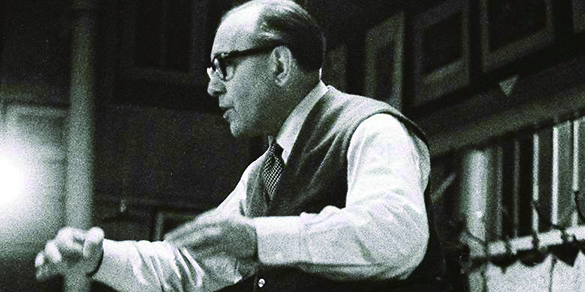 한스 스바로프스키
한스 스바로프스키
©Anton Swarowsky
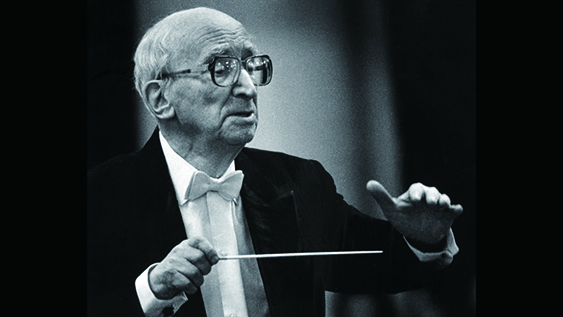 일리야 무신
일리야 무신
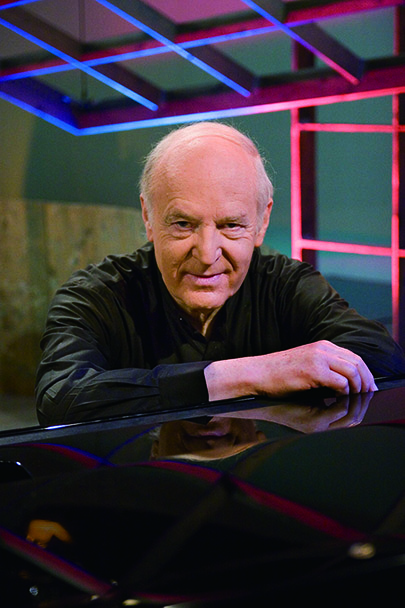 아리에 바르디
아리에 바르디
 요르마 파눌라
요르마 파눌라
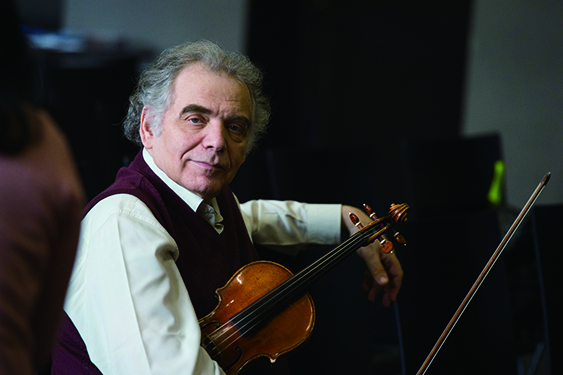 자카르 브론
자카르 브론
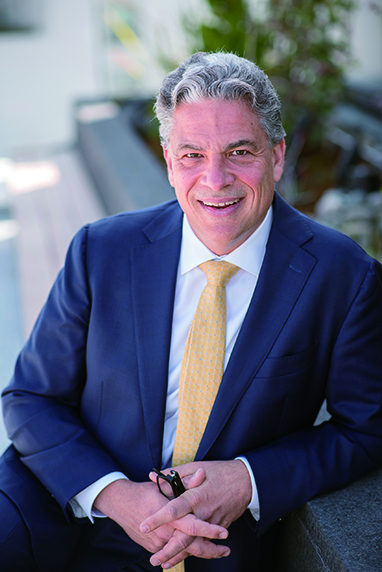
www.carlinmaphotography.com
데이비드 스털
